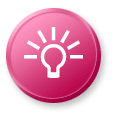這本書是學術英語寫作界的「不藏私寶典」!
?
當你凝視著論文(或作業)的時候,論文也凝視著你──英語學術論文寫作,是許多人在學習途中的考驗,這本書正是為了這些勇敢的冒險者量身打造!
?
作者們由自身笑淚交織的經驗出發,像一位隱形的學長姊,與你一起在「論文寫作」的世界中冒險。從揭開學術寫作迷思的面紗,搭配案例、練習題,和你逐步走過選題、文獻回顧、研究方法到結果討論,還包含「 AI 輔助寫作」、「 生涯規劃」等等議題——沒錯,你並不是唯一在凌晨三點還在跟論文對抗的人!
?
「這本書中很特別的一點是貫穿全書的《唬爾摩斯與譁生》偵探故事。由系列的故事引導讀者進入每一章中作者們要傳達的核心概念,並在生硬的文字段落中插入表格和插圖,以不同的形式來幫助讀者理解書中的內容,使他們能夠快速掌握書中複雜的概念。」——師大校長吳正己
?
「書中除了運用了偵探故事的元素,激發讀者的好奇心之外,還大玩眾多風趣的時事梗、諧音梗、流行文化梗和迷因梗圖等。特別是擅長將枯燥的概念用貼近年輕人生活的事例來比擬取譬,讓同學在學習嚴肅的學術寫作時也能保持愉快心情。這也反映出作者團隊高超的教學創意,能把複雜的寫作技巧和研究方法轉化為生動易懂的內容,還能令人會心一笑。」——師大翻譯所前所長廖柏森教授
?
「如果是勇者欣梅爾的話,他一定也會這麼做的。」我們衷心希望,這本書能幫讓你在學術寫作的冒險旅程上少走點彎路,甚至還能找到一點樂趣也說不定哦!(嘿嘿,別說不可能!)
?
In this book, the authors share all their secrets on how to write well in the academic context!
Picture this: You open up an academic writing task or assignment and stare at it. You might feel the task staring back at you. And then what??
?
Does this sound familiar (perhaps too familiar)? If it does, you are not alone. Academic writing in English is immensely challenging for many beginning writers. For those of you brave enough to take on the challenge, this book is here to give you a boost!
?
Throughout the book, the authors share heartfelt stories of laughter and joy, sweat and tears. They are like your personal guardian angels – you cant see them, but they are there as your loyal companions as you embark on your academic writing adventure. First, we begin with some debunking myths on academic writing to help you get started on the right foot, before the various chapters take you through the key components of an academic paper or thesis, such as setting a good topic, conducting a literature review, discussing your research method, and penning your discussion and conclusion to wrap up the manuscript. Every chapter comes with a host of examples and guided exercises to ensure you grasp important academic writing know-how. On top of that, there are also chapters on the intersection of pertinent issues, such as AI and career prospects, with academic writing. Know that you are not the only one being kept awake at 3 am thinking about these issues or struggling with your writing!
?
“One of the most unique features of this book is the story of Detective Surelock and Dr. Whatson, which opens each chapter. The detective story at the start of every chapter introduces its core concept. Furthermore, the writers also include a variety of visual aids and illustrations, especially at the more difficult parts of the text, so that readers might grasp important and complex ideas relatively easily.” – Dr. Cheng-Chih Wu, President, National Taiwan Normal University
?
“Besides incorporating elements of detective stories to make for a more interesting read, the writers also included numerous funny references to current affairs and pop culture, utilized wordplays, and added lots of memes to the text. The writers are especially skilled at using analogies familiar to young readers to explain what could have been dry and boring concepts. In this way, beginner writers would not feel bogged down even as they pick up pointers on writing serious academic papers. Such a writing style reflects the high level of pedagogical creativity wielded by the writing team, for they managed to not only transform complex writing techniques and research methods into interesting and easy-to-understand content but even elicit a laugh in the process!”– Dr. Liao Posen, Former Chair, Graduate Institute of Translation and Interpretation, National Taiwan Normal University
?
To quote a line from the anime and manga Frieren, "The Hero Himmel wouldve done that." You, too, can emulate Himmels courage and take on what seems like an impossible challenge. We sincerely hope that this book will make your academic writing adventure less arduous, and even a little more fun! After all, nothing is impossible when you put your mind to it!


















